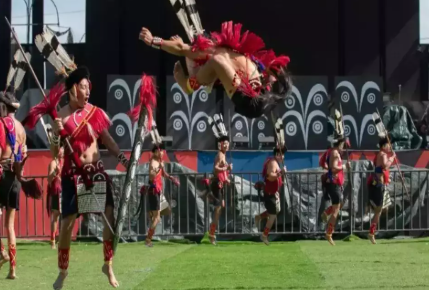25th Hornbill Festival of Nagaland
The 25th Hornbill Festival of Nagaland is currently underway and has sparked discussions about the state’s liquor ban. The tourism minister has announced that Indian-made Foreign Liquor (IMFL) will be allowed. This decision has faced backlash from church organizations and they oppose the sale of alcohol, including traditional rice beer, at the festival.
Hornbill Festival Overview
The Hornbill Festival began in 2000. It is Nagaland’s largest cultural celebration, which promotes tourism and showcases the traditions of 14 Naga tribes. In 2023, over 154,000 visitors attended, including 2,000 foreign tourists.
Role of Alcohol in the Festival
Alcohol consumption at the festival is controversial. Nagaland has a strict liquor ban. However, traditional rice beer, Thutse, is permitted during the event. This exception marks the clash between Naga’s cultural identity and Christian values. Previous festivals saw alcohol sales banned due to church pressure.
Church Opposition
The Nagaland Baptist Church Council (NBCC) leads the opposition against relaxing the liquor ban. They argue that tourists should focus on experiencing Naga culture, not drinking alcohol. The tourism minister believes that easing restrictions will attract more visitors.
The liquor prohibition law was enacted in 1989, origins trace back to moral values introduced by Christian missionaries. Rice beer brewing was a common practice before the arrival of American Baptists in the 1870s. Today, 87% of Nagaland’s population identifies as Christian, yet rice beer remains a cultural staple.
Current Government Review
The state government is reviewing the prohibition law. Discussions have brought into light the law’s limited success in preventing alcohol smuggling. Officials suggest regulating alcohol may be more effective than an outright ban. Concerns about lost excise revenue also arise. Despite this, the church continues to oppose any repeal of the law.
GKToday Facts for Exams:
- IMFL – Indian-made Foreign Liquor (IMFL) is now allowed at Nagaland’s Hornbill Festival. This decision aims to enhance tourism, despite criticism from local church organisations.
- Thutse – Thutse is a traditional rice beer integral to Naga culture. It is uniquely permitted during the Hornbill Festival, denoting cultural identity amidst religious opposition.
- NBCC – The Nagaland Baptist Church Council (NBCC) is a prominent religious organisation. It opposes the relaxation of liquor laws, advocating for cultural experiences over alcohol consumption.
- Nagaland Liquor Total Prohibition (NLTP) Act – Enacted in 1989, the NLTP Act aims to curb alcohol consumption. Its effectiveness is debated, with calls for regulation instead of prohibition emerging.
Month: Current Affairs - December, 2024
Category: States Current Affairs


